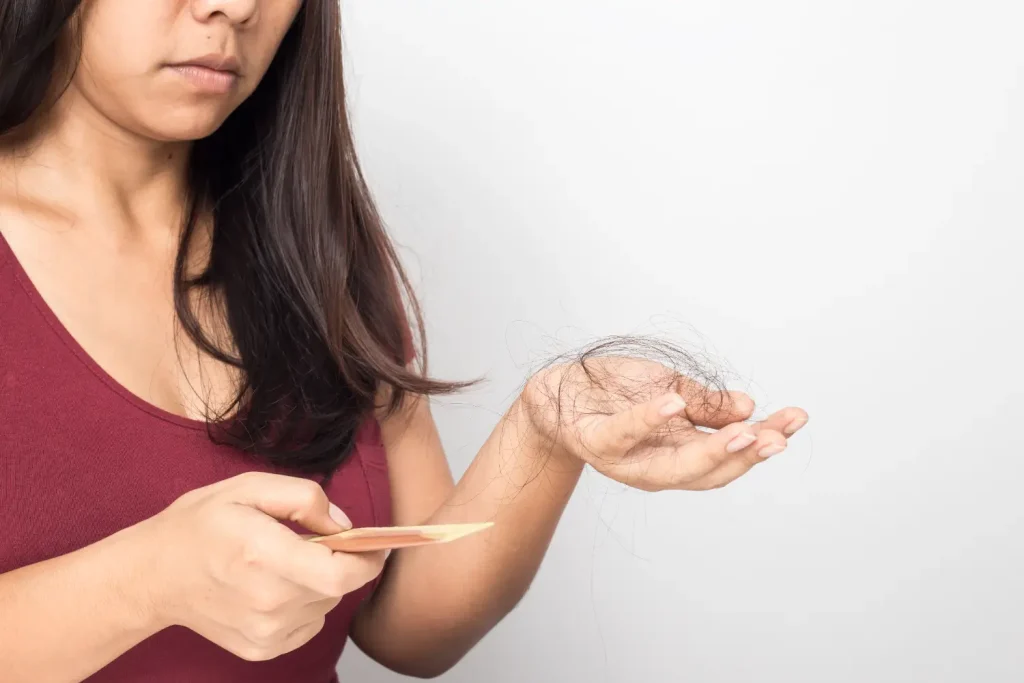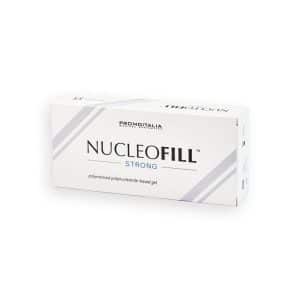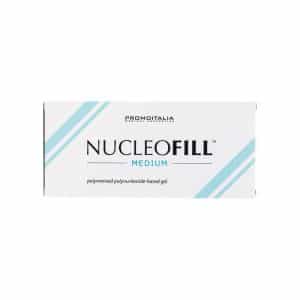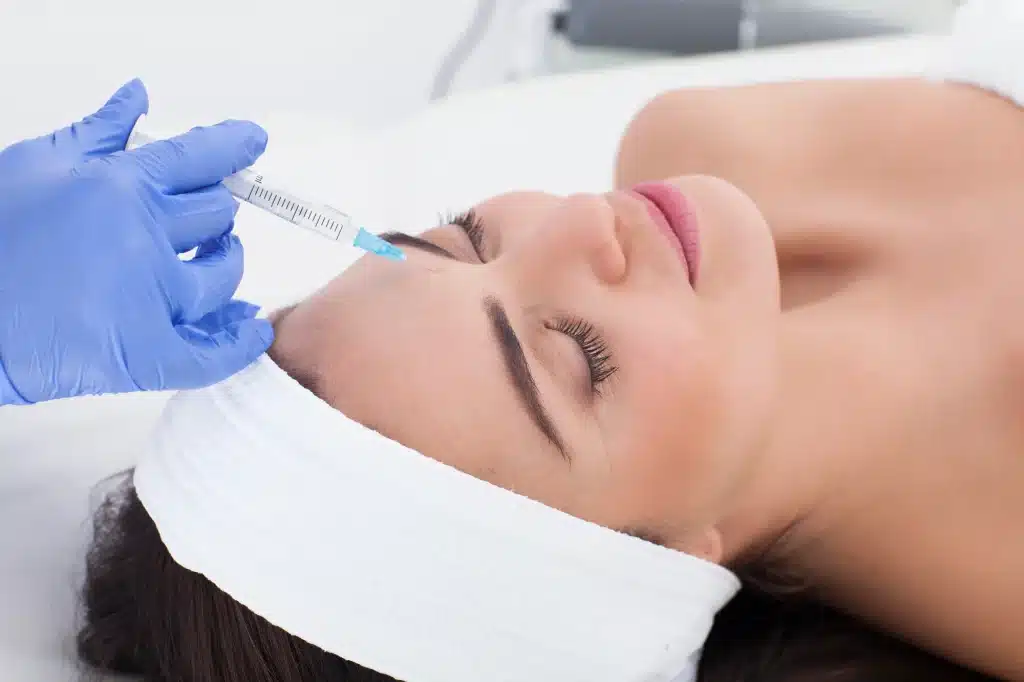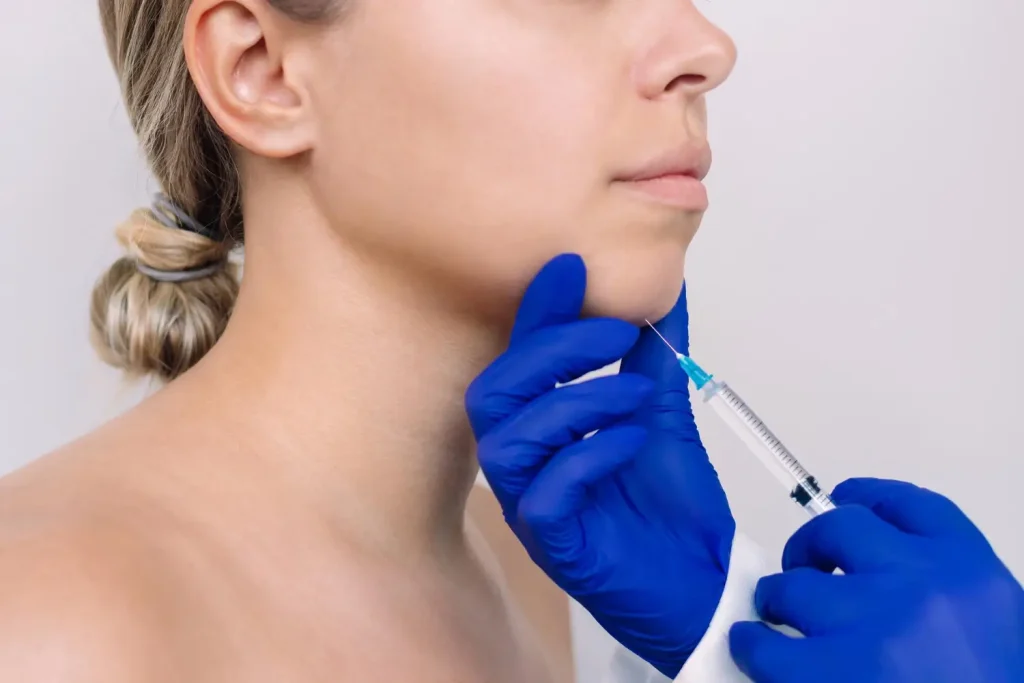Hair loss is a common issue affecting millions globally, often caused by genetics, hormonal changes, and stress. This concern impacts both men and women, with many seeking solutions to restore their hair’s health and vitality.
Among the latest innovations, polynucleotides have emerged as a promising treatment for hair loss. These naturally derived compounds support hair follicles’ health, enhancing the environment needed for robust growth. They offer a non-invasive option for those looking to improve their hair quality without resorting to surgical methods.
In this article, we will explore using polynucleotides for hair loss, exploring their benefits, mechanisms, and where to find this cutting-edge treatment.
Key Takeaways
- Polynucleotides support hair restoration by stimulating cellular repair, reducing inflammation, and promoting blood circulation to improve scalp health and hair density.
- These treatments are ideal for patients with early-stage hair thinning or mild to moderate hair loss, providing non-invasive and effective solutions.
- Contraindications include severe hair loss, pregnancy, and certain medical conditions, such as diabetes or skin infections, requiring careful patient selection.
- Scientific studies validate the efficacy of polynucleotide injections, making them a trusted option in hair restoration therapies.
About: Medical Spa RX provides medical practices with premium products at the best prices. If you’re looking to buy Polynucleotides wholesale for your practice, the sales representatives at Medical Spa RX can give you guidance.
Understanding Polynucleotides and Hair Loss
Polynucleotides (PNs) are natural biopolymers composed of nucleotide sequences crucial for cellular function and repair. In recent years, PNs have gained attention in dermatology, particularly in hair loss treatments. Their ability to stimulate collagen production, promote cell regeneration, and enhance tissue repair makes them beneficial for hair restoration.
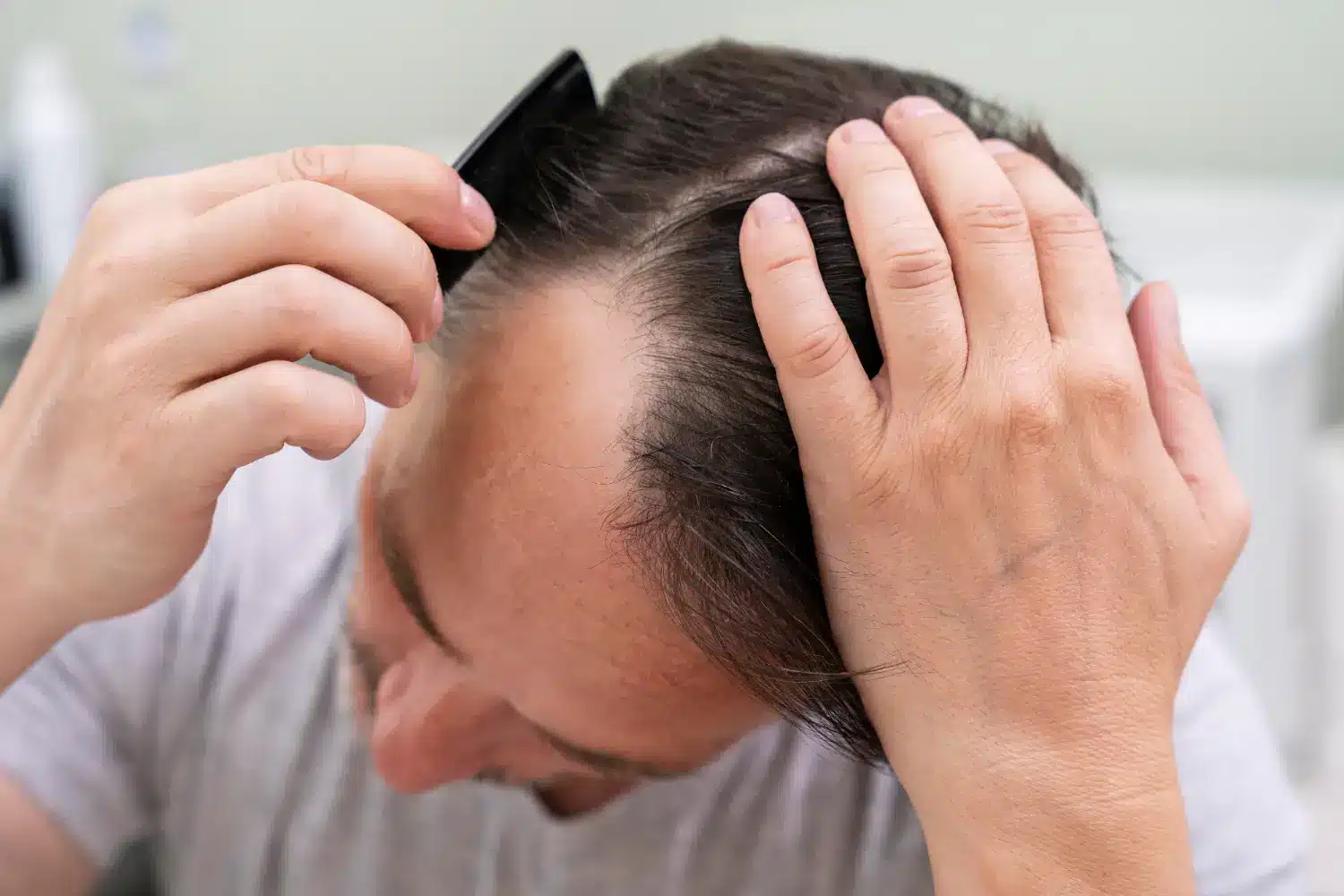
By encouraging the growth of hair follicles and improving scalp health, PNs help combat various causes of hair loss, including androgenic alopecia and thinning. Treatment with polynucleotides can rejuvenate hair growth by addressing underlying inflammation and improving blood circulation to the scalp, offering a promising non-surgical solution for those struggling with hair loss.
The Treatment Protocol for Polynucleotides in Hair Restoration
Polynucleotides (PN) are an advanced solution for hair restoration, offering regenerative benefits to both the scalp and hair follicles. The treatment protocol involves several key steps to ensure efficacy and optimal results:
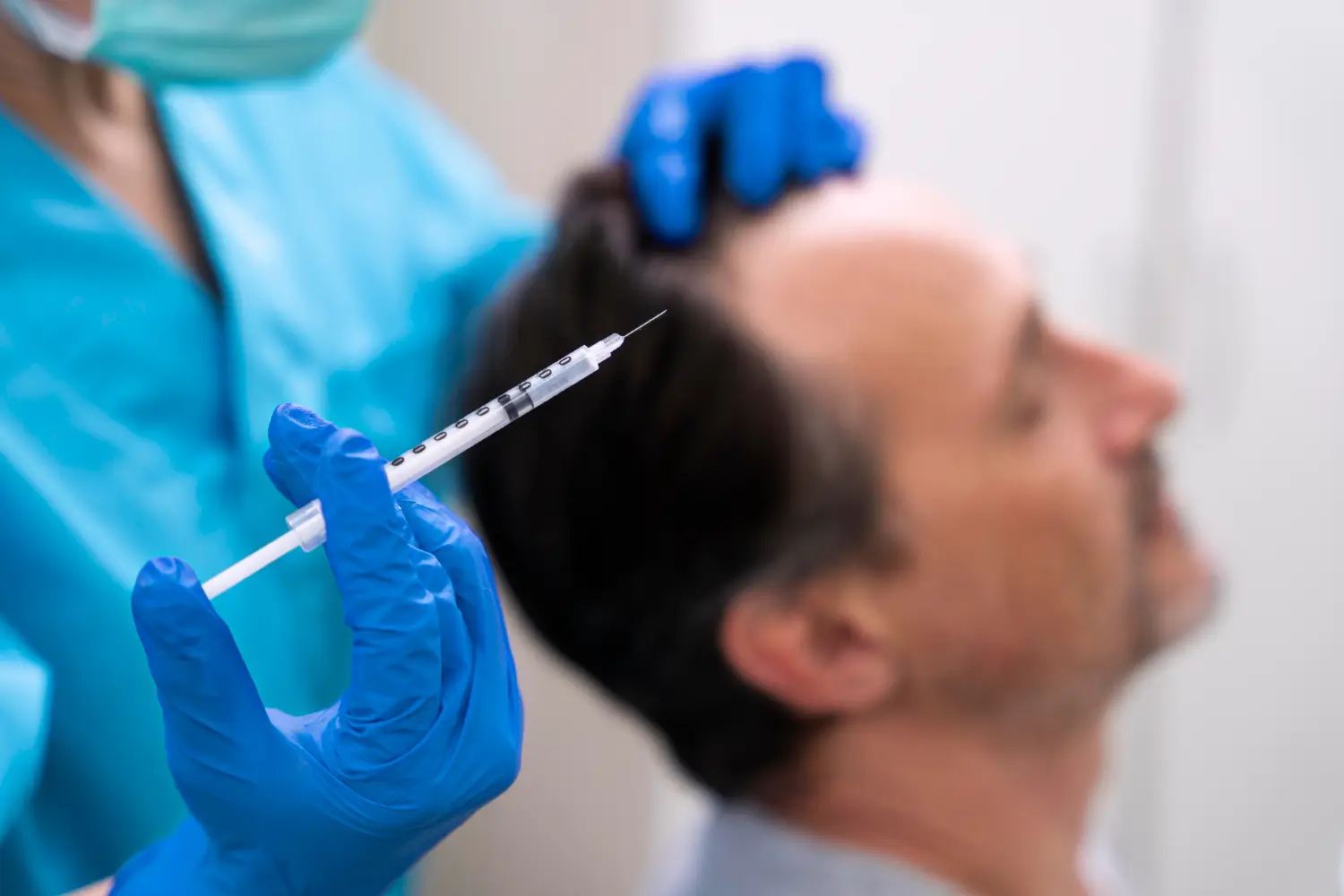
- Scalp Assessment: To tailor the treatment plan to the patient’s needs, a thorough evaluation of hair loss, follicular density, and scalp health is performed.
- Injection Technique: PN is delivered through micro-injections or mesotherapy directly into the scalp, ensuring the active ingredients reach hair follicles and surrounding tissues. This technique promotes tissue regeneration, collagen production, and improved circulation.
- Treatment Schedule: Patients typically receive 4-6 sessions spaced 2-4 weeks apart. Results are cumulative, with maintenance treatments recommended every 6-12 months.
- Regenerative Effects: PN stimulates collagen and elastin production, revitalizing hair follicles and improving overall scalp health to enhance hair growth and density.
- Expected Results: Visible improvements usually begin within 2-3 months, with full results emerging after 6-12 months, including thicker, healthier hair and reduced shedding.
- Ideal Candidates: This treatment is effective for individuals with androgenic alopecia (pattern hair loss) or general thinning hair. It is suitable for both men and women, especially in the early to moderate stages of hair loss.
This non-invasive, highly effective treatment offers long-lasting, natural-looking results for hair restoration.
Patient Selection, Contraindications, and Scientific Evidence
Polynucleotides are suitable for patients experiencing mild to moderate hair thinning or early signs of hair loss. Ideal candidates include those seeking preventative measures to maintain or improve hair and scalp health.
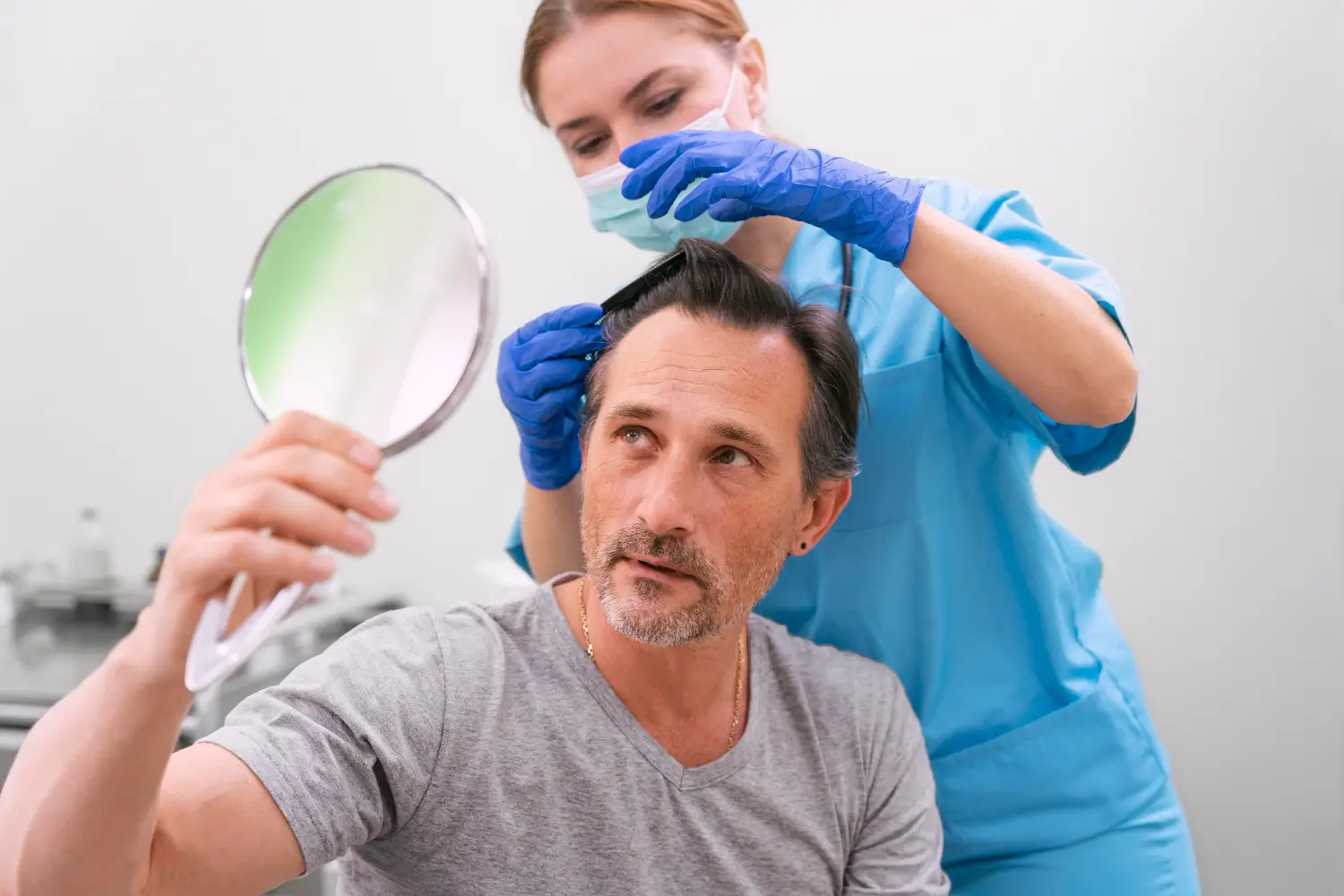
However, polynucleotide treatments are contraindicated for individuals with the following:
- Severe hair loss
- Bald patches
- Undergoing pregnancy
- Lactating
- Diabetes
- Rheumatism
- Skin infections
- Significant scalp damage.
Scientific studies have demonstrated the efficacy of polynucleotide injections in promoting hair growth, increasing hair density, and improving hair thickness. These injections work by stimulating cellular repair, reducing inflammation, and promoting angiogenesis.
In the debate of polynucleotides vs exosomes, both treatments show promise in hair restoration. Exosomes deliver growth factors and proteins directly to hair follicles, enhancing hair growth. While both treatments offer benefits, polynucleotides are often preferred for their minimal side effects and non-systemic toxicity.
Conclusion
Polynucleotides present an innovative solution for addressing hair loss, offering a non-surgical and effective approach to restoring hair density and scalp health. These treatments provide visible and long-lasting results by enhancing cellular repair and boosting collagen production. However, careful patient selection and adherence to contraindications ensure optimal outcomes.
With growing clinical evidence supporting their efficacy, polynucleotides continue to gain recognition as a transformative option in regenerative medicine.
FAQs
1. What is the difference between polynucleotides and PRP (Platelet-Rich Plasma)?
Polynucleotides focus on cellular regeneration through nucleotides, while PRP uses growth factors derived from blood platelets to heal and repair tissue.
2. How long does it take to see results from polynucleotide therapy for hair loss?
Visible improvements typically occur within 3-6 months, with progressive enhancements in hair thickness and reduced shedding.
3. Can polynucleotide therapy treat all types of hair loss?
Polynucleotides are effective for mild to moderate hair thinning and early-stage androgenic alopecia but are not suitable for severe hair loss or bald patches.
4. Can polynucleotide therapy be used for skin rejuvenation?
Yes, it can help improve skin texture, reduce wrinkles, and promote collagen production for a youthful appearance.
References
Why is my hair falling out? 10 causes of hair loss. www.medicalnewstoday.com. Published November 15, 2019. https://www.medicalnewstoday.com/articles/327005
Cavallini M, Bartoletti E, Maioli L, et al. Consensus report on the use of PN‐HPTTM (polynucleotides highly purified technology) in aesthetic medicine. Journal of Cosmetic Dermatology. 2020;20(3):922-928. doi:https://doi.org/10.1111/jocd.13679
